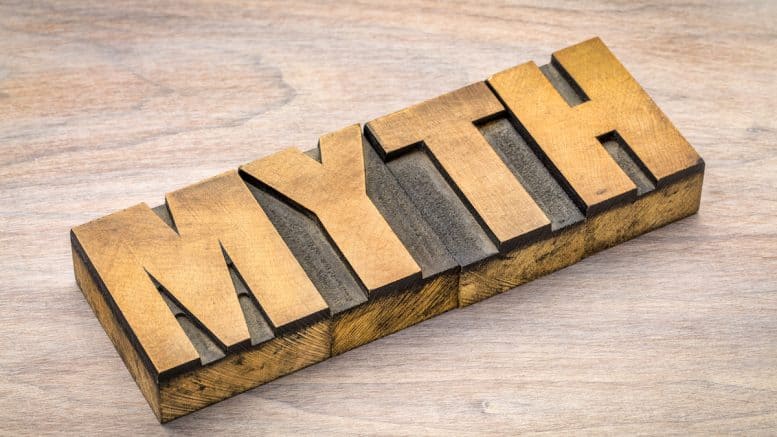Starches and carbohydrates do not make you fat.
[pullquote]Do carbohydrates make us fat? [/pullquote]There are only four common macronutrients used for energy: alcohol, carbohydrates, fats, and protein. Of these, carbohydrates instill fear in all that think of them. They are vilified for being the cause of diabetes, heart disease, and obesity. The fear is based on the belief that carbohydrates drive obesity by raising the hormone insulin. The problem is that this is an overly simplistic view.
So what is the mechanism by which insulin works? Insulin is a hormone and hormone compound our bodies use to send signals. In this case, insulin is the signal for our cells to uptake sugar from our bloodstream, Our cells need to use or store the sugar. Most of our cells do not have the ability to store excess sugar, so it must be stored in one of two forms. Our liver and muscle can store a very limited amount of glucose, so anything more than that limited amount must be stored as fat. The theory that insulin causes obesity is based on the fact that it increases fat storage and thus reduces the release of fats from cells. Insulin also increases hunger over time and increases food intake.
If higher insulin levels and carbohydrates increase weight gain, then logically, reducing insulin and carbohydrates should effectively reduce weight and obesity. This concept is the basis of a low carbohydrate diet. It is well documented that you can lose weight on either a low-carb or a higher carbohydrate diet. Low carb does not equate to no carbs. In fact, a zero carbohydrate diet is nearly impossible. The key is moderation and portion control. It is true that not all calories are created equal, but there has to be some moderation of caloric intake through portion control.
So what does the research show? The research is not clear-cut. If you search hard enough, you will find research to back up just about every diet you want to try, and I have personally tried them all. Research shows that low-carb diets show no advantage over the traditional higher carbohydrate weight loss diet1. There are also plenty of research studies that show an advantage to low carb diets and I reviewed them in prior articles. If you notice the statement in that article, it does not say the low-carb diet does not work, but instead, it indicates that low-carb is not superior. If you review the study, it did work for weight loss.
Does a low-carb diet work? Yes. Many dieters experience a successful short-term weight loss on a low-carb diet2,3. This happened because low-carb diets are higher in protein which decreases appetite. The satiety effect happens with all forms of protein no matter whether it comes from dairy, eggs, meat, or plants. Low carb diets also tend to be lower in junk foods which tend to be higher in both empty calories and processed ingredients.
Will a high-fat diet cause weight gain? Yes. There is at least one study that shows high-fat diets will cause higher levels of weight gain than isocaloric diets that are higher in carbohydrates4.
Do high carbohydrate diets make us fat? Yes. New research from 2017 shows that not only does a high carbohydrate diet make us more obese, but it also increases our mobility and mortality5.
Does a standard lower fat, high carbohydrate diet work? Yes. If you practice portion control and eat a well-balanced meal, you will lose weight. The key to staying full is fiber from whole grains and fresh fruits and vegetables. Fiber fills you up and slows digestion and absorption of nutrients. I personally think that a standard diet works better because it is easier to maintain.
So what is the truth? Like I said above, research points in all directions, and you can find one to back the diet you want to try. I think the truth is in the middle. I think you need to individualize your diet to your own preferences, genetics, and health conditions. You need to find a diet you can lose weight and maintain for the rest of your life. The problem with most research is that it is way too simplistic and short-lived to show long-term weight loss maintenance.
The bottom line: Carbohydrates are not enemies. Lower carb diets or low carb living might provide many health benefits, and for some of us, it can help with weight loss. I tend to recommend to my patients that they reduce their intake of white foods for weight loss. This recommendation is not because carbs make us fat but because they tend to be the easiest to eliminate and still get the vitamins and minerals we need. Enjoy your carbs if you like them, but remember, you can make all the carbohydrates you need to function.
References
- 1.Johnston C, Tjonn S, Swan P, White A, Hutchins H, Sears B. Ketogenic low-carbohydrate diets have no metabolic advantage over nonketogenic low-carbohydrate diets. Am J Clin Nutr. 2006;83(5):1055-1061.
- 2.Foster G, Wyatt H, Hill J, et al. A randomized trial of a low-carbohydrate diet for obesity. N Engl J Med. 2003;348(21):2082-2090.
- 3.Foster G, Wyatt H, Hill J, et al. Weight and metabolic outcomes after 2 years on a low-carbohydrate versus low-fat diet: a randomized trial. Ann Intern Med. 2010;153(3):147-157.
- 4.Horton T, Drougas H, Brachey A, Reed G, Peters J, Hill J. Fat and carbohydrate overfeeding in humans: different effects on energy storage. Am J Clin Nutr. 1995;62(1):19-29.
- 5.Dehghan M, Mente A, Zhang X, et al. Associations of fats and carbohydrate intake with cardiovascular disease and mortality in 18 countries from five continents (PURE): a prospective cohort study. Lancet. 2017;390(10107):2050-2062.









Be the first to comment on "Myth: Starches make you fat"